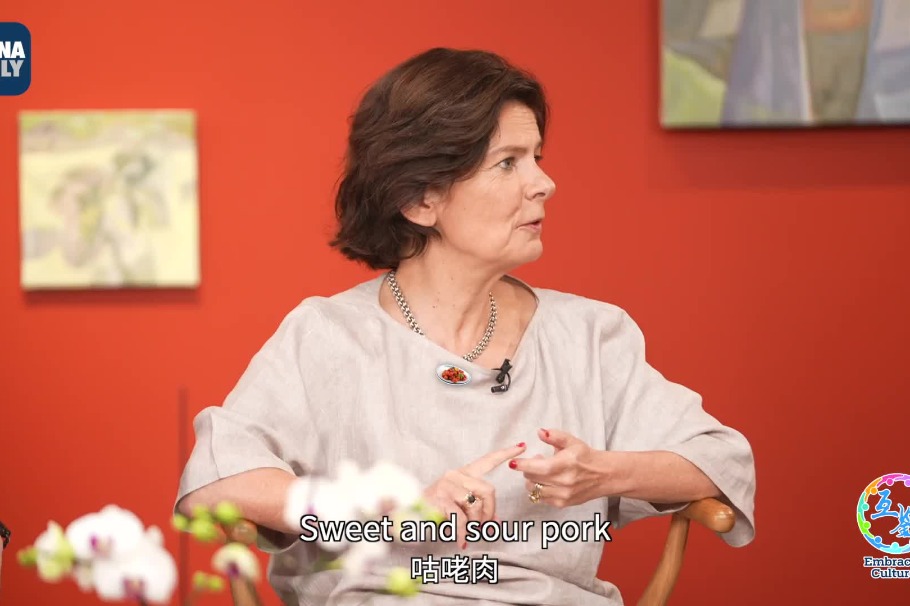比爾·蓋茨夫婦斯坦福大學2014畢業典禮演講(雙語)
網易公開課 2014-06-27 15:58

?
The digital divide was a focus of mine in 1997, when I took my first trip to South Africa. I went there on business so I spent most of my time in meetings in downtown Johannesburg. I stayed in the home of one of the richest families in South Africa.
當我在1997年首次出訪南非時,我便開始關注“數碼鴻溝”。因公事出差的我將大部分時間都花費在約翰內斯堡的市區開會中。當時我住在南非最富裕的一戶家庭中。
It had only been three years since the election of Nelson Mandela marked the end of apartheid. When I sat down for dinner with my hosts, they used a bell to call the butler. After dinner, the women and men separated and the men smoked cigars. I thought, good thing I read Jane Austen, or I wouldn't have known what was going on. (Laughter).
那時距離尼爾森?曼德拉上臺,并結束種族隔離只有3年。當我同主人共進晚餐時,他們使用鈴鐺來使喚管家。在晚飯后,男女相互分開而男人們開始抽雪茄。當時我想,幸好我讀過簡?奧斯汀的書否則我就不知道發生了什么。(笑聲)
But the next day I went to Soweto, the poor township southwest of Johannesburg, that had been the center of the anti-apartheid movement. It was a short distance from the city into the township, but the entry was sudden, jarring and harsh.
但在第二天我去了索韋托,約翰內斯堡西南的一個貧窮小鎮,那里曾經是反種族隔離的中心。盡管從約翰內斯堡到索韋托路程不長,但從進入索韋托的那一刻起,一切都令人無比震驚。
I passed into a world completely unlike the one I came from. My visit to Soweto became an early lesson in how naive I was. Microsoft was donating computers and software to a community center there. The kind of thing we did in the United States.
我覺得我來到了一個和我所來自的地方截然不同的世界。索韋托之行讓我很早便意識到自己竟是如此天真。微軟向那里的一個社區中心捐贈計算機和軟件。和我們在美國所做的一切相同。
But it became clear to me, very quickly, that this was not the United States.
但是我很快明白了,這里并不是美國。
I had seen statistics on poverty, but I had never really seen poverty.The people there lived in corrugated tin shacks with no electricity, no water, no toilets. Most people didn't wear shoes. They walked barefoot along the streets, except there were no streets, just ruts in the mud.
我曾經閱覽過有關貧窮的調查數據,但是卻未曾目睹過貧窮。那里的人們住在用鐵皮搭成的簡陋棚戶里,沒有電,沒有自來水,也沒有廁所。人們幾乎不穿鞋,赤腳行走。或者可以說根本沒有街道,只是一些坑洼的泥土路。
The community center had no consistent source of power. So they rigged up an extension cord that ran 200 feet from the center to the diesel generator outside. Looking at this setup, I knew the minute the reporters left, the generator would get moved to a more urgent task. And the people who used the community center would go back to worrying about challenges that couldn't be solved by a personal computer.
由于社區中心沒有持續供電的設施,所以他們安裝了一根延長線連接到200英尺以外的柴油發電機上。看過了這些裝置,我明白了一旦記者離開后,發電機將會被運用到更緊迫的任務上。使用社區中心的人們也會因此而離開,為電腦所不能解決的問題而擔憂。
When I gave my prepared remarks to the press, I said Soweto is a milestone. There are major decisions ahead about whether technology will leave the developing world behind. This is to close the gap.
當我向媒體道出已準備好的發言時,我談到索韋托的經歷對我而言是一個里程碑,我們所面臨的重大決定是科技是否會讓發展中國家落后。這也便是要縮小差距。
But as I read those words, I knew they weren't super relevant. What I didn't say was, by the way, we're not focused on the fact that half a million people on this continent are dying every year from malaria. But we are sure as hell going to bring you computers.
但當我說出這些詞時,我發現他們并不是如此相關。我沒有說的是,“順便說一下,我們并沒有注意到這個大洲上每年都會有50萬人死于瘧疾的事實。”但我們還是萬分確信我們會為他們帶來計算機。
Before I went to Soweto, I thought I understood the world's problems but I was blind to many of the most important ones. I was so taken aback by what I saw that I had to ask myself, did I still believe that innovation could solve the world's toughest problems? I promised myself that before I came back to Africa, I would find out more about what keeps people poor.
在我去索韋托之前,我認為自己很理解這個世界存在的問題,可那時我才明白我忽視了最重要的問題,我不停問自己‘你還認為創新能解決世界上最棘手的問題嗎?’我向自己保證,在重回非洲之前,會找到更多讓人們貧窮的原因。
Over the years, Melinda and I did learn more about the pressing needs of the poor.
數年來,我和梅琳達確實發現了窮人們的當務之需。
On a later trip to South Africa, I paid a visit to a hospital for patients with MDR-TB, multi-drug resistant tuberculosis, a disease with a cure rate of under 50%. I remember that hospital as a place of despair.
在后來一次到南非的時候,我去了一家住有很多抗藥性肺結核患者和耐多藥結核病患者的醫院,這是一種治愈率不到50%的頑疾。我還記得那個充滿絕望的地方。
It was a giant open ward, with a sea of patients shuffling around in pajamas, wearing masks. There was one floor just for children, including some babies lying in bed. They had a little school for kids who were well enough to learn, but many of the children couldn't make it, and the hospital didn't seem to know whether it was worth it to keep the school open.
在一個巨大的開放性病房里,住著很多很多病人,他們穿著睡衣,帶著口罩,慢慢挪動著。有一層樓是專為孩童開設的,其中包括還在臥床的嬰兒們。醫院中也為適齡兒童設有小學校,但是大多數孩子都無法戰勝病魔踏入學堂,因此醫院似乎并不確信是否有必要開設這所學校。
I talked to a patient there in her early 30s. She had been a worker at a TB hospital when she came down with a cough. She went to a doctor and he told her said she had drug-resistant TB. She was later diagnosed with AIDS. She wasn't going to live much longer, but there were plenty of MDR patients waiting to take her bed when she vacated it. This was hell with a waiting list.
我同一位30多歲的病人做了交談,并了解到她曾肺結核醫院的一名職工,因為咳嗽而病倒。她看了醫生,醫生告訴她患上了耐藥性結核病,在后來也被診斷患有艾滋。她活不了過久了,但有很多耐多藥結核病患者卻“覬覦”著她即將空出的床位。這是一個有很多候場病人的地獄。
But seeing this hell didn't reduce my optimism. It channeled it. I got into the car as I left and I told the doctor we were working with I know MDR-TB is hard to cure, but we must do something for these people. And, in fact, this year, we are entering phase three with the new TB drug regime for patients who respond, instead of a 50% cure rate after 18 months for $2,000, we get an 80% cure rate after six months for under $100. (Applause).
但是目睹了這個地域并不能減少我的樂觀心態,相反,它指導著樂觀的前行。在我們離開時,我在車里跟與我們同行的醫生說,我雖然知道耐多藥結核病是一種頑疾,但我們必須為這些人做一些實事。實際上,在今年,我們進入了新結核藥物研發的第三階段,對于那些病人而言,他們不再需為18個月50%的治愈率而花費2000美元,我們的新藥物花費不超100美元便能在6個月后實現80%的治愈率。(掌聲)
Optimism is often dismissed as false hope. But there is also false hopelessness. That's the attitude that says we can't defeat poverty and disease. We absolutely can.
樂觀常被視為錯誤的希望。但是錯誤的無望也存在于世,那就是我們無法擊敗貧困和疾病的態度。但我們卻能夠做到。

















 英語點津微信
英語點津微信 雙語小程序
雙語小程序